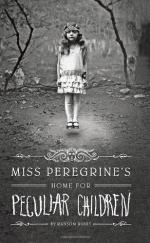
|
| Name: _________________________ | Period: ___________________ |
This test consists of 5 short answer questions, 10 short essay questions, and 1 (of 3) essay topics.
Short Answer Questions
1. What does Jacob notice about one of his grandfather's neighbors?
2. Where has Jacob seen the view he sees from one end of the tunnel in Chapter 5?
3. What is Jacob's job in his family's business?
4. Who is Ricky?
5. What upsets Jacob when he opens what he found in the Home in Chapter 5?
Short Essay Questions
1. What does Jacob say about how his life has changed in the Prologue?
2. Describe Jacob's conversation with Martin Pagett's Uncle Oggie.
3. Why does Jacob run out of the Priest's Hole in Chapter 5? Who does he encounter, and what does she do?
4. What do Jacob's parents do after the police artist ploy does not seem to help Jacob?
5. How do Jacob's parents try to calm Jacob after his grandfather’s death and what does he think of the effort?
6. What does Jacob say about how his elderly grandfather has deteriorated in Chapter 1?
7. What does Jacob first find during the exploration of the abandoned Home in Chapter 5?
8. What does Miss Peregrine say about ymbrynes?
9. What does Jacob say about his grandfather and a special school in the Prologue?
10. What does Jacob watch out of the window of the Home in Chapter 6?
Essay Topics
Write an essay for ONE of the following topics:
Essay Topic 1
Discuss one of the following:
1. Thoroughly analyze how the setting informs the plot in Miss Peregrine's Home for Peculiar Children.
2. Trace and analyze one major theme of Miss Peregrine's Home for Peculiar Children. How is the theme represented by symbolism? By the characters' behaviors? By the action?
3. Trace and analyze two secondary themes of Miss Peregrine's Home for Peculiar Children. How are the themes represented by symbolism? By the characters' behaviors? By the action?
Essay Topic 2
Many readers of fiction place themselves in the position of one character, wondering if they would do the same thing as that character. Discuss the following:
1. Do you think one of the values of literature is to serve as a reflection of oneself? Why or why not?
2. Socrates said "Know thyself." How can reading a book such as Miss Peregrine's Home for Peculiar Children help a reader to know him/herself? Do you find yourself reflecting on your own character and abilities when reading Miss Peregrine's Home for Peculiar Children? Why or why not?
3. Choose one specific incident in Miss Peregrine's Home for Peculiar Children to discuss and compare one of the characters' responses to how you think you would respond.
Essay Topic 3
Miss Peregrine's Home for Peculiar Children belongs to the fantasy genre. Discuss the following:
1. Define the literary term "genre" and give several examples of three other genres in addition to the fantasy genre.
2. Discuss two reasons why it might be useful to label a text by genre and two reasons it might be disadvantageous to label a text by genre.
3. What do you think is the difference between a fantasy and a historical novel mystery?
|
This section contains 982 words (approx. 4 pages at 300 words per page) |

|




